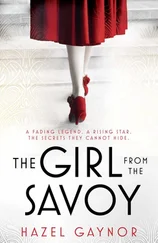Samantha Geimer and Lawrence Silver
THE GIRL
A LIFE IN THE SHADOW OF ROMAN POLANSKI
You see, Mr. Gittes, most men never have to face the fact that in the right time, the right place… they are capable of anything.
—JOHN HUSTON TO JACK NICHOLSON IN ROMAN POLANSKI’S
Chinatown
N o. No freakin’ way. I can’t do this again.
September 27, 2009, Estes Park, Colorado. A chill in the air, snow on the mountaintops, leaves cinnamon and gold—so different from the glorious monotony of our Hawaii weather. My husband and I were in the middle of a long-anticipated vacation on the mainland—celebrating family birthdays, catching trout, watching elk rut. We were feeling particularly festive. At 6:00 AM Dave left our hotel to fish. I collapsed gratefully back into bed. At 8:15 AM the phone rang.
It was my friend Dawn. She was always looking out for me. “I have to tell you something, and you have to wake up and be ready,” she said. I was instantly awake. I knew something bad had happened to her. I steeled myself.
“Roman Polanski got arrested.”
Oh God. This wasn’t her bad news. This was my bad news.
“Sam? Did you hear what I said?”
When I’m upset, I curse. I can’t help it. I become a fourteen-year-old boy. “Shit shit shit shit, what the fuck. ”
“They arrested him in Switzerland,” Dawn said. “I just heard it on the news.”
Sickness, panic. Need my family. Need my mother. Need a Xanax.
CNN had the story:
Oscar-winning filmmaker Roman Polanski has been arrested in Switzerland on a decades-old arrest warrant stemming from a sex charge in California, Swiss police said Sunday.
Polanski, 76, was taken into custody trying to enter Switzerland on Saturday, Zurich police said. A spokesman for the Swiss Justice Ministry said Polanski was arrested upon arrival at the airport.
He has lived in France for decades to avoid being arrested if he enters the United States and declined to appear in person to collect his Academy Award for Best Director for “The Pianist” in 2003.
The director pleaded guilty in 1977 to a single count of having unlawful sexual intercourse with a minor, acknowledging he had sex with a 13-year-old girl. But he fled the United States before he could be sentenced, and U.S. authorities have had a warrant for his arrest since 1978.
Here’s a problem: This story doesn’t mention the insanity that preceded his flight—the egomaniacal judge, the unconscionable uncertainty of the sentencing, the case being played out not in the courtroom, but in the media.
And here’s another problem: Roman Polanski’s arrest was, in a sense, my arrest. Because I am that thirteen-year-old girl.
Oh for God’s sakes, it’s all such ancient history, you might say. After all, it’s 2013: he’s eighty, I’m fifty. He is one of the most celebrated filmmakers in the world. I have a great husband, great kids, a great life. What do his problems, at this point, have to do with me?
Well, nothing. And everything.
To say that the Roman Polanski rape case was a circus is only the mildest exaggeration. For the media, there was nothing to equal its heady combination of sex, celebrity, and depravity until the O. J. Simpson trial in 1995. Just about everyone who lived through or read about this sordid chapter in Hollywood history had an opinion about the renowned director and the girl he was accused of drugging, raping, and sodomizing—me.
Opinions on the Polanski case go something like this: He was a vile pedophile whose power allowed him to escape the long arm of the law. Or: He was a troubled man whose own horrific background did not allow him to gauge the difference between a child and a young woman. And the girl? She was an innocent victim. Or, no: She was a cunning Lolita. Or, perhaps most commonly: She was a reluctant but ultimately willing player in the crazy ambitions of her stage mother, who wanted her little girl to be a star.
Who was the predator? Who was the prey? We were all suspect: Was Roman a rapist? Had my mother set up the famous director to blackmail him, using her daughter as bait? The arguments went on and on and on. Maybe the only person who lived through that time who has not weighed in on the crime and its aftermath in any significant way is… me. Which is why I thought it might be a good idea to tell my story.
But these thoughts only occurred to me a few months after Polanski’s arrest. That day, I was in a very different frame of mind. I was thinking: Goodbye, peace. Hello, Media Nightmare. Because I knew that whenever Polanski was in the news, I would be, too.
Ask yourself this: Would you like the craziest thing that ever happened to you as a teenager broadcast and then dissected over and over on television, in the blogosphere?
Right. I didn’t think so.
I called home and told my sons to unplug the phone—there were already thirty messages that had landed in the first few hours, and within the next couple of days my lawyer, Lawrence Silver, would be inundated. As much as I dreaded any time Roman Polanski was in the news, I never imagined that the appetite for this story would lead reporters to show up on Kauai. On my doorstep. My sons became prisoners in their own home. Photographers had staked out space in front of my property, sitting in their cars, waiting and drinking stale coffee. What did Rape Girl look like now? Was she fat, thin, pretty, wrinkly? Imagine how much my sons, who were then seventeen, twenty-one, and twenty-seven, enjoyed thinking about why their mom was getting this attention. Nobody likes to think about their mother getting kissed, never mind something like this.
As soon as I heard, I called Dave: “Sorry, fishing trip is over. We have problems. Come back now. ” I called Mom, who’d been staying with my aunt up the road. “What did he do now?” she asked. It didn’t occur to her that his arrest, thirty-two years later, could have anything to do with me .
We made our way to Denver, staying overnight in a hotel near the airport. Roman’s arrest was in all the newspapers and running on the ticker on the news channels. My face was on all the televisions in the lobby bar. “Everyone’s staring,” Dave whispered. Were they? I don’t know. Maybe it was his imagination. I kept my head down. But the woman at the front desk noticed my photo in the Denver paper and upgraded us to a more secure floor. I was so grateful to that hotel, because that would be the last time I’d have any peace for the next few weeks.
In the Hawaiian airport a smattering of photographers were waiting for us. How did they even know what flight I was on? I guess all airline companies have moles. It was uncomfortable, but it was quickly over. Still, Dave and I had no choice: I couldn’t go home and face the paparazzi. We slept that night at my office. A couple of days later, an article ran that said I was “clearly upset and looking tired and drawn.” More like exhausted and furious.
By the time I dared to go home, most of the stalkerazzi had grumpily given up camping outside my door. I had to hand it to my sons; they helped. They monitored the cars parked in front of the house, and shouted at anyone who came by to gawk; my son Alex even went out and continually photographed one of the photographers until he left. They had to discourage their friends from confronting the photographers; my sons were having to be peacekeepers as well.
Over the next few days, we would receive more than two hundred calls, almost all from the press, and that doesn’t include the ones that came to Larry’s office. At the same time, my husband’s cousins—the Geimer relations in California—were dealing with people knocking on their door. Geimer was an uncommon name, and reporters figured these people might have some idea where I was and what I was up to. Probably, in the minds of these media folks, I was having horrible flashbacks from decades ago. I was—but it was horrible flashbacks of them.
Читать дальше













